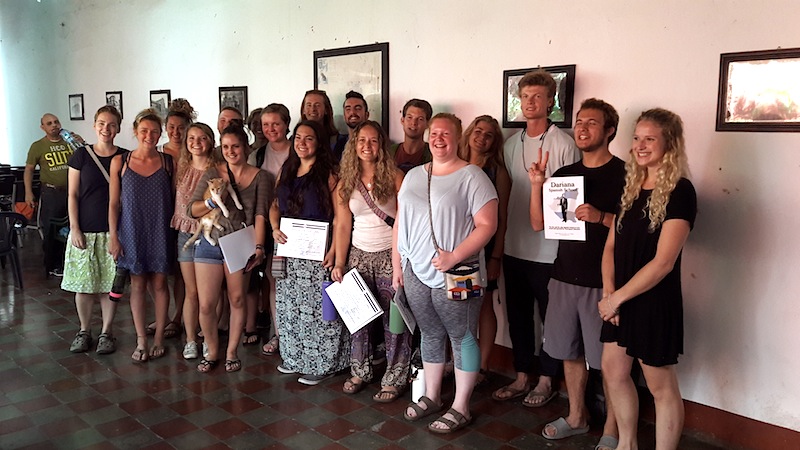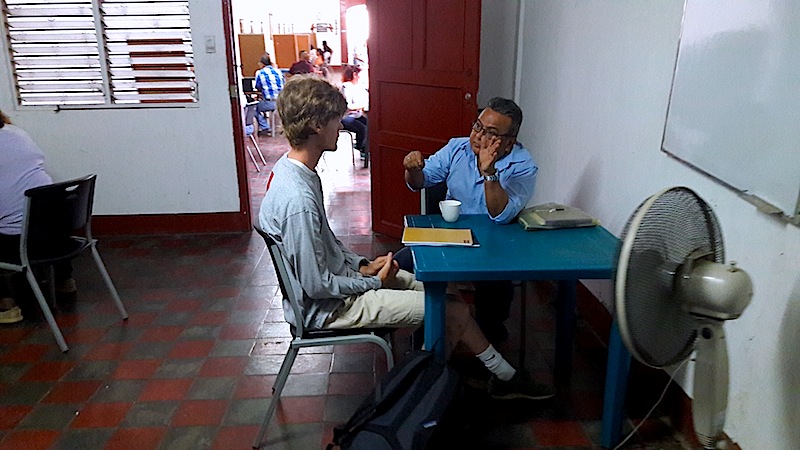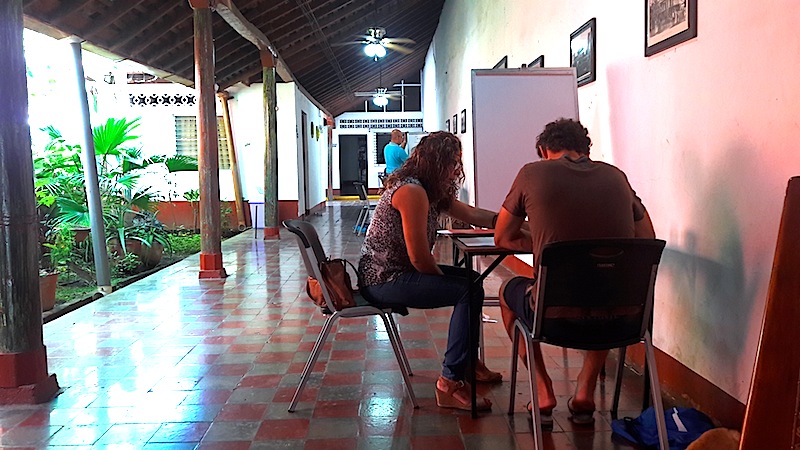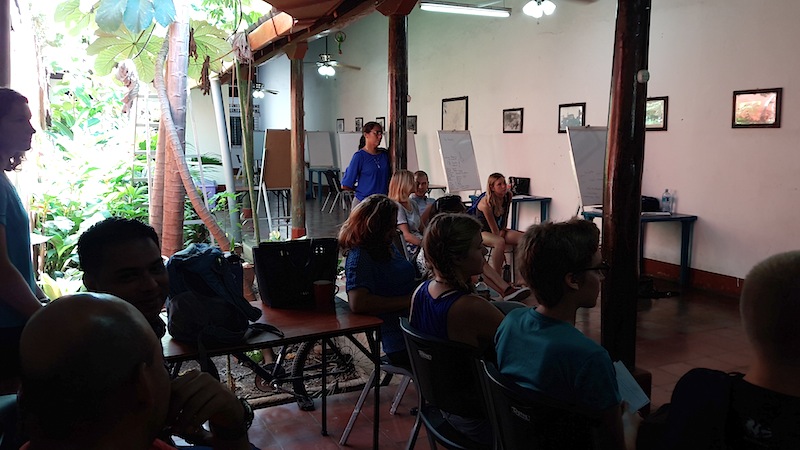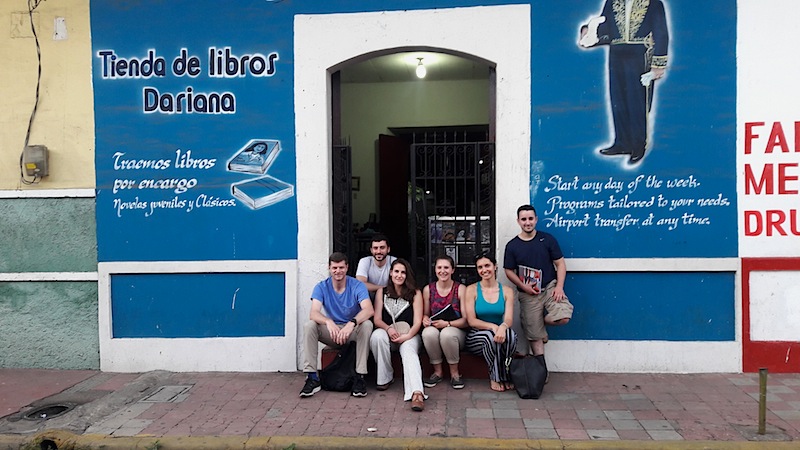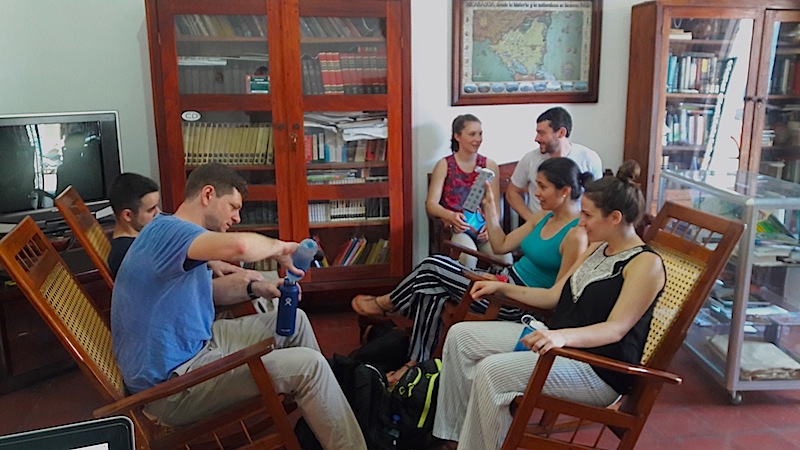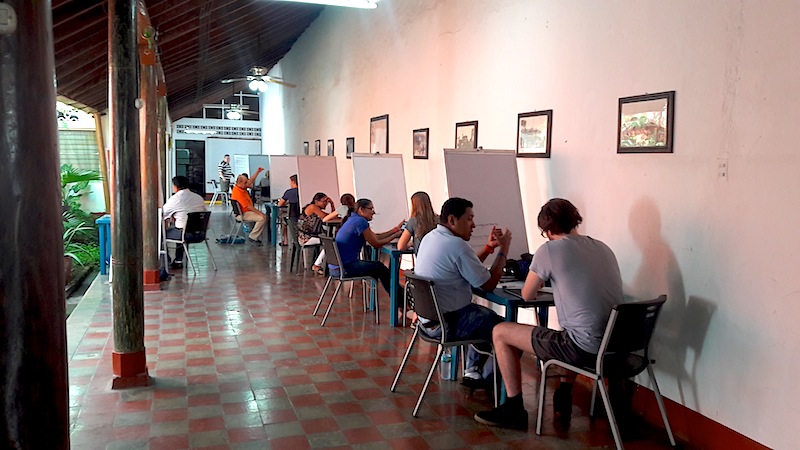Who is the course for?
Have you always wanted to find a way into the food, music, cinema or literature of the Spanish-speaking world?
This course is for students who want to continue developing their knowledge and understanding of the society and culture of Latin America and to extend the practical skills of listening, speaking, reading and writing. You will also develop your critical, analytical and intercultural skills. The module is structured around six themes, which give a broad introduction to different aspects of society and culture in Spanish-speaking countries.
This course is designed for those wanting to develop good communication skills and learn how to analyze, evaluate and present ideas and arguments effectively; and will become adept at relating to other people and being open to different points of view, all of which are highly valued skills in many professional settings.
A much deeper lesson structure will be given on the following grammatical and course contents.
The imperfect subjunctive
The past perfect (pluperfect) subjunctive
Spanish verb tenses: Overview
Indicative vs. Subjunctive II
If-clauses
Relative pronouns, relative clauses
Por vs. para
The passive voice
Phrasal verbs and verbs with prepositions
Indirect speech
Stories to read
Revision
Present tense
Preterite
Perfect preterite
Imperfect
Pluperfect
Future
Perfect future
Conditional
Perfect conditional
Present tense
Imperfect
Perfect preterite
Pluperfect
The full-time course is 4 hours a day, five days per week. Which includes 20 hours of one-to-one tuition, all course materials, and afternoon activities. The study materials we’ve carefully created are structured and graded, and provide ample opportunities to practice the language in realistic contexts.
This course can include accommodation with one of our local families. The price is for seven days and six nights with three meals a day (full catering) from Monday to Saturday. On Sundays, our students are expected to look after their own catering needs.
What topics will you cover?
This course is based around six themes: Leisure and culture; Geography; Work, employment; History; Celebrations, customs, and traditions; and Society. Through each theme, you will gradually develop your Spanish knowledge and skills by:
- familiarising yourself with core vocabulary and grammar
- learning about and reflecting on language, culture, and intercultural communication skills
- engaging in a wide variety of speaking and interactive activities
- practicing direct translation to support your language learning
- working independently and in collaboration with others
- reviewing and monitoring your progress using checklists, and reflective questions
Cost:
| Per Week US $ | Hourly lessons per day | Teaching Materials | Afternoon Activities | Homestay (full catering) | |
|---|---|---|---|---|---|
Please note: Afternoon activities are for a maximum of two weeks. From Monday to Thursday, there is one activity per day. They include visiting the Cathedral, The forte, The Ruben Dario museum to name a few. Homestays are with Nicaraguan families in Nicaraguan homes with three meals a day from Monday to Saturday. Families do not speak English.
Should you wish to find your own accommodation, we can suggest a range of places to stay to suit your budget level. For example, there are serviced apartments very close to the school, through to backpacker style hostels. If you require airport pick up or pick up from other locations within Nicaragua, please visit our additional services Additional services
What will you achieve?
By the end of the course, you’ll be able to:
• Judge and value.
• Tell stories. Express temporal relationships between actions.
• Correct erroneous information.
• Define.
• Give instructions.
• Give and ask for an opinion.
• Advise.
• Persuade and convince.
• Resources to express agreement and disagreement with part of what another has said.
• Express hypotheses
• Express probability in its various degrees
• Repeat, count and summarize what has been said
• Remember someone.
• React to information showing agreement and disagreement.
• Relate and add information indicating oppositions and contrasts.
• Express likes, wishes and feelings.
• Describe, express opinion and value positively and negatively.
• Express doubt and reservation.
• Express strangeness, amazement.
• Express complaint/protest and argue it.
• Make suggestions and recommendations.
• Ask for and give advice.
• Accept and reject advice.
• Organization of the speech.
A selection of our advanced students working one-to-one with their teachers.
I loved my time at Dariana Spanish School. I spent a summer there taking one-on-one lessons with some lovely teachers that helped me improve my speaking skills. My teachers were able to tailor the lessons to my needs instead of making me start over at a basic level. My speaking skills improved, and I could carry out a conversation with a local Nicaraguan by the time I left. The course definitely gave me more confidence to communicate during my travel around Latin America. This was such a good experience! Nicole Kuha review
